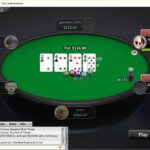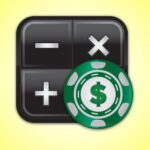I have always felt that the playing of overcards presents some of the most difficult situations in limit hold’em at times. When I first started out as an online player, limit hold’em was my main game and these overcard situations were some of the most difficult for me to handle at that time.
Over the past few weeks I have switched poker sites and am now very much active on Pokerloco these days. I have also been working on a new system as well at the low-stakes games and this has led to me playing quite a bit of $5-$10 limit hold’em. In this article and the next few to come I am going to be looking at some situations at low-stakes limit that I hope readers will find instructive.
I am going to mainly discuss the situation of overcards in this article as a sort of overview and then look to expand on that in future articles by looking at some of my hands from Pokerloco. There are numerous different scenarios with overcards that contribute to making them tricky.
You could for example raise before the flop and miss the flop and then have to decide whether to keep on firing or not. These kinds of situations are very dependent on board texture and the number of opponents that you have in the hand. I would also like to add that these scenarios are taken from full-ring and from six-max so I will look at some hand examples that have been taken from both.
The varying dynamics of these situations present players with great difficulties as often the best course of action can be either betting, raising or even folding. I will also be looking at situations where you are getting pot odds and have nothing but overcards and these situations can also be very difficult to play as well.
Unfortunately the harsh truth is that there are simply no set in stone answers to many overcard situations. Most of what I do in actual games is based on feel that is brought about from clocking literally hundreds of thousands of hands down the years and probably millions. Long before I started using tracking software, I was playing around 200 hands per hour on average and playing forty hours per week.
This equates to around 400,000 hands a year and I have played limit for numerous years now so it has to be several million hands by now. So the underlying ideas are based on that experience but I am not immune from being wrong so if anyone disagrees with anything then please, feel free to comment and criticise. This is how we all improve as players.
But looking at overcard situations then it is clear that in many instances, checking or folding can be the superior play. This is even when you were the pre-flop aggressor. On the surface this may seem like poor weak poker but you will be correct to fold overcards or to check them in many instances and I will explore those as well in the articles to come.
Over the years I have done my fair share of reading and studying limit hold’em. This then carried forward into watching and studying coaching websites. These days coaching websites do seem to be populated by top professionals who have broken the game down more than what we ever did several years ago. You have to take your hat off to some of these young kids because many of them have near technically perfect games.
You really wouldn’t want to meet them down a dark poker alley in a heads-up situation. However I do find that some authors and coaches do play badly in certain situations. Of course, we all play badly at times but this is why writing about and studying poker is so damn interesting as it not only broadens our poker minds but it also helps us to be able to think about the game.
Poker is after all a game that demands situational thinking and the ability to think quickly and accurately is a primary skill these days in the speeded up pace of online poker. So please keep a close eye out for the coming articles where I will be exploring the often misunderstood concept of playing overcards in limit hold’em. I will be basing my examples on the $3-$6 levels to the $10-$20 levels as I presume that this is where the majority of readers on this site play.
Carl “The Dean” Sampson can be seen at his blog at www.pokersharkpool.com

Submit your review | |









